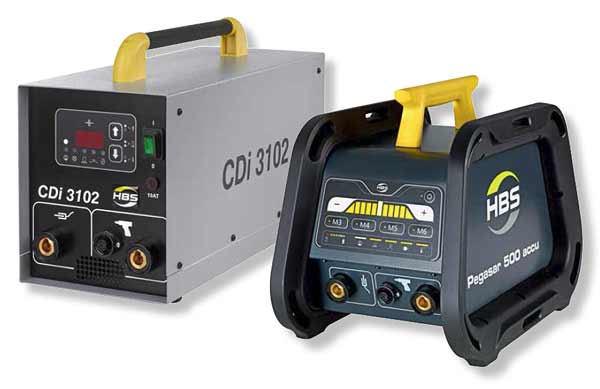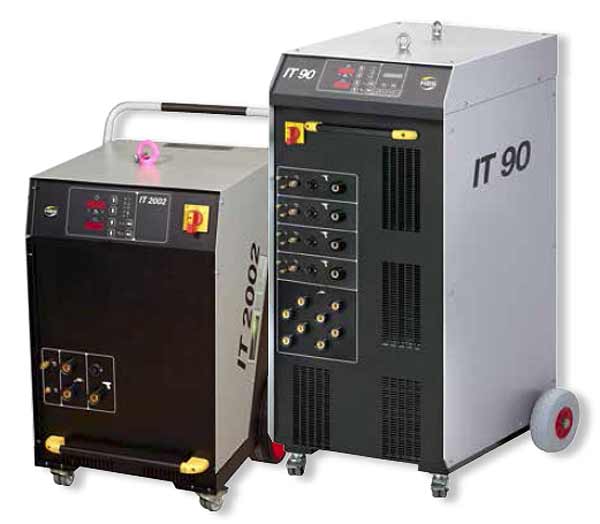Stud Welding Frequently Asked Questions
What kind of applications can stud welding be used for?
First of all, the applications are endless! A basic description is: anywhere a metal fastener is end-joined to a metal work piece.
Some examples of stud welding users include; metal working industries, shipbuilding, aerospace, offshore drilling platforms, petrochemical industries, insulation installation, construction and anywhere metal fastening is required.
What are the benefits of stud welding?
Stud Welding is a major improvement over other methods and the benefits are many!
Variety of Fasteners - there is a wide assortment of standard, in stock fasteners, called weld studs. If we don't have exactly what you need, we will design and make a special fastener for your application.
All Types of Metals - practically any metal can be adapted to stud welding. Aluminum, mild steel, stainless steel, copper, and brass are the most common. Exotic metals such as titanium and Inconel can also be used.
Weld Strength - Permanence and Integrity - stud welding produces a full penetration cross sectional weld.
Elimination of Secondary Operations - there is no need to drill or tap holes. No need to polish or grind surface metal in most cases. No rivet heads, bolts, nuts or washers; plus you eliminate the associated equipment and costs of these operations.
Uniformity and Repeatability - the stud welder precisely controls and monitors the amount of energy used to weld the fastener which produces consistently strong welds.
Speed - you can load, position and weld up to 30 times a minute. With automatic equipment, as many as 1800 studs can be fastened per hour!
Accuracy - precise location of your stud welded fastener. With simple tooling, a location tolerance of ± .015" is standard with portable equipment. With bench-type equipment, standard tolerance is ± .010. A location tolerance of even ± .007" can be achieved with special equipment.
One Man Operation - a single worker can fasten Arc Weld Studs or CD Weld Studs, whether the equipment is a portable gun or an elaborate piece of production equipment.
Attractive Appearance - A CD weld only penetrates a few thousandths of an inch, creating no burns or dimples on the reverse side. The fastener is surface mounted to one side of the work piece which eliminates ugly rivet heads, bolts, nuts and washers.
What is the difference between Capacitor Discharge (CD) and Arc Stud Welding?
CD Stud Welding is generally used to weld smaller diameter fasteners to thin base metals.![]() (See our video on CD stud welding for more information)
(See our video on CD stud welding for more information)
Arc Stud Welding is generally used to weld larger diameter fasteners to rougher and thicker base metals.![]() (See our video on Arc stud welding for more information)
(See our video on Arc stud welding for more information)
How large or small can weld studs be?
The smallest diameter weld stud is 14 GA. The largest diameter is 1 1/8". Standard and non-standard lengths are available.
There is an extensive assortment of standard stock weld studs available. Custom weld studs can also be made to your specifications.
What determines the power needed to weld the stud?
The diameter of the stud determines how much power is needed. Every stud welder has a minimum to maximum diameter stud range capability.
What kind of power is needed for stud welding?
The power needed varies depending on the type and size of the stud welder.
The power required for Capacitor Discharge (CD) Stud Welders is 110VAC.
Arc Stud Welders' power requirements range from 230-460VAC. Single phase or 3 phase systems are available. Amperage requirements range from 35 Amp to 200 Amp service depending on the size of the system required for your application.
Does temperature or weather affect stud welding?
Recommendation for stud welding in cold or wet weather: Stud Welding shall not be done when the base metal temperature is below 0°F or when the surface is wet or exposed to falling rain or snow.
What are automated stud welding systems?
Automated stud welding systems are also known as production welders. These types of welders are designed and built specifically for your application. Production welders streamline stud welding for customers who need specific repetitive stud welding in their manufacturing process.![]() (See our video of a production welder in use.)
(See our video of a production welder in use.)


